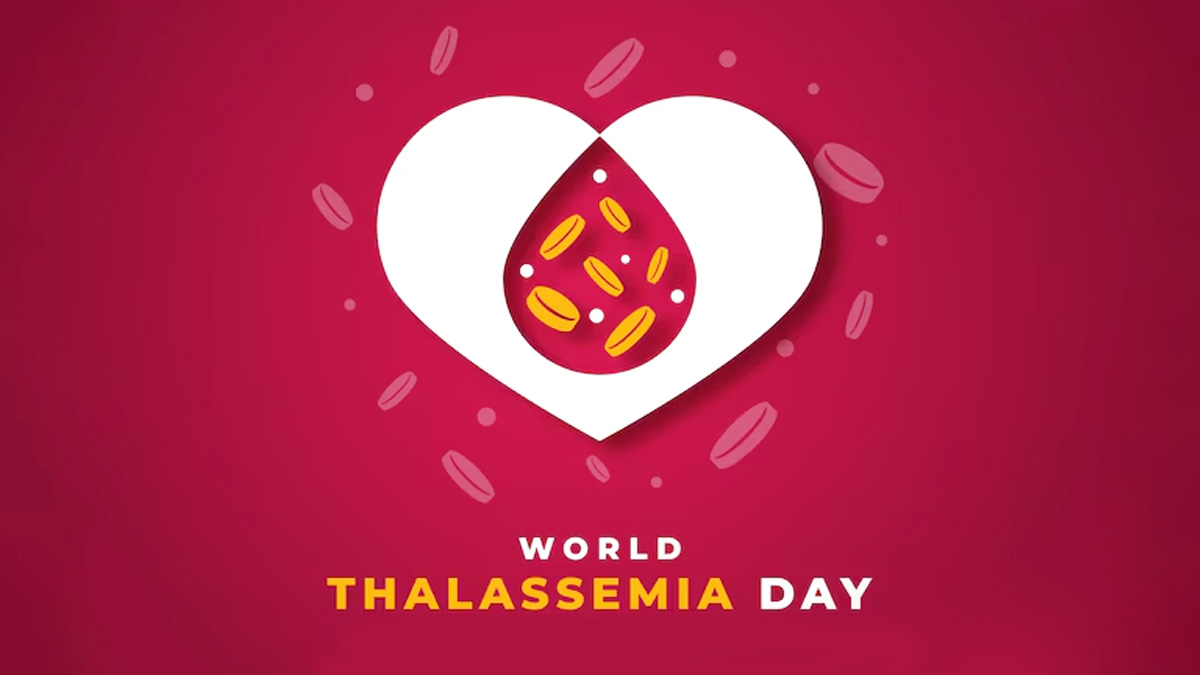
Thalassemia is a blood disorder which is passed on from parents to children through genes. This is caused when our body does not make enough haemoglobin. In most cases, thalassemia is not preventable in normal pregnancies, but can it be prevented from in vitro fertilisation?
Table of Content:-
To get a proper detailed answer on this, OnlyMyHealth team interacted with Dr Manju Nair, Clinical Director- Fertility, Cloudnine Group of Hospitals, Bengaluru.
Thalassemia And IVF
In discussing whether in vitro fertilisation (IVF) can prevent the risk of thalassemia and whether one should opt for this procedure, it's important to understand the relationship between IVF, genetic testing, and the prevention of genetic disorders like thalassemia. “Thalassemia is an autosomal recessive condition. That means both partners need to be carriers for the baby to inherit this condition. If only one partner is affected then it’s not a risk factor for the couple,” Dr Manju said.

Adding further, Dr Manju said, “Two can prevent thalassemia in babies born to couples who are affected or are carriers by either doing Preimplantation genetic test (PGT) - which will be done on embryos generated through IVF. That will ensure a healthy embryo is selected and the couple conceive with a healthy baby free of thalassemia. If the couple are not willing for IVF with PGT then after natural conception to go ahead with Amniocentesis or CVS to detect thalassemia status and in case the baby is affected then terminate.”
Also read: Can Women With Diabetes Go For IVF? Here’s What Expert Explains
IVF, combined with preimplantation genetic diagnosis (PGD) or preimplantation genetic testing (PGT), can potentially help prevent the risk of thalassemia in certain situations. Dr Manju has put down how this process works and factors to consider.
Genetic Screening: Before undergoing IVF, couples at risk of having a child with thalassemia can undergo genetic screening. This involves testing to identify carriers of thalassemia gene mutations. If both partners are carriers (i.e., they carry one abnormal copy of the gene but do not have thalassemia themselves), there is a risk of having a child with thalassemia if both pass on their abnormal genes.

IVF with PGD/PGT: In IVF with PGD or PGT, embryos created through IVF are tested for genetic abnormalities, including thalassemia mutations, before implantation in the uterus. This testing allows embryos that are free of thalassemia mutations to be selected for transfer, reducing the risk of having a child with thalassemia.
Now, let's address whether one should opt for IVF with genetic testing to prevent the risk of thalassemia.
Personal Circumstances: Couples who are known carriers of thalassemia mutations and desire to have children may opt for IVF with PGD/PGT to reduce the risk of passing on thalassemia to their offspring. This can be a viable option for couples seeking to have biological children while minimising the risk of genetic disorders.
Also read: Advancements in IVF Technology: A Deep Dive into Cutting-Edge Techniques
Ethical Considerations: IVF with genetic testing raises ethical considerations, including the use of assisted reproductive technologies, embryo selection, and potential implications for family dynamics. Couples should carefully consider these factors and seek counselling or guidance from healthcare professionals.
“While IVF with genetic testing can help reduce the risk of thalassemia by selecting embryos free of genetic mutations, the decision to opt for this procedure should be based on individual circumstances, preferences, and ethical considerations,” Dr Manju said, adding, “Couples should engage in informed discussions with a fertility specialist to understand all available options, potential outcomes, and associated implications before making a decision about IVF for thalassemia prevention.”
Testing for thalassemia during early pregnancy, specifically within the first 12 weeks of gestation, involves genetic screening of both parents to assess the risk of thalassemia in the foetus.
Also watch this video
Read Next
Ashley Blaine Featherson Announces Pregnancy After IVF Journey; Risk Associated With IVF Pregnancy
How we keep this article up to date:
We work with experts and keep a close eye on the latest in health and wellness. Whenever there is a new research or helpful information, we update our articles with accurate and useful advice.
Current Version